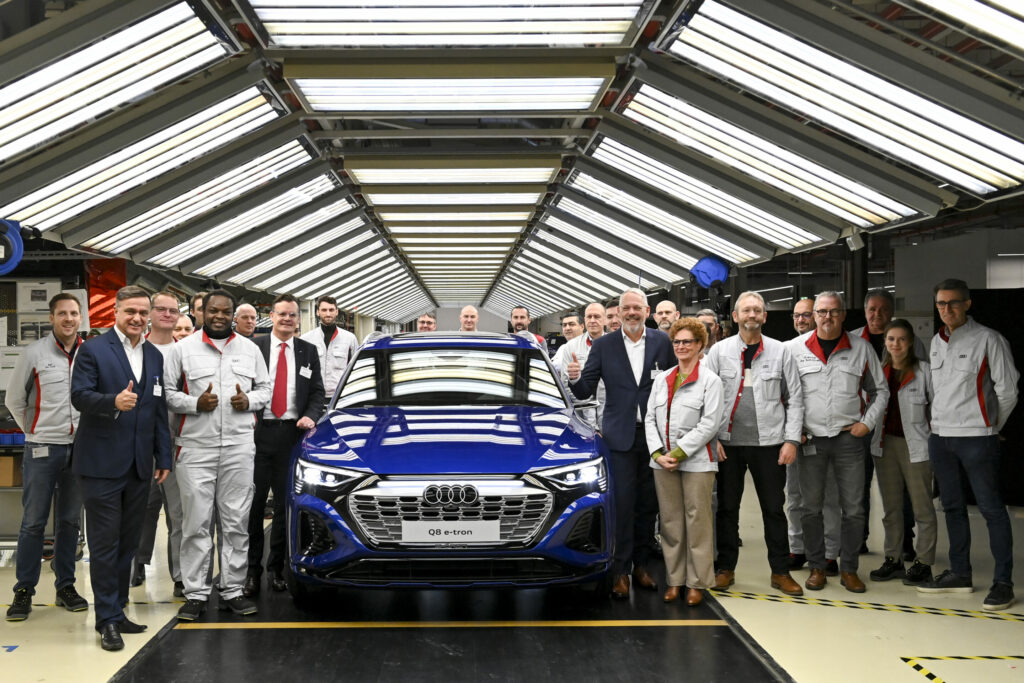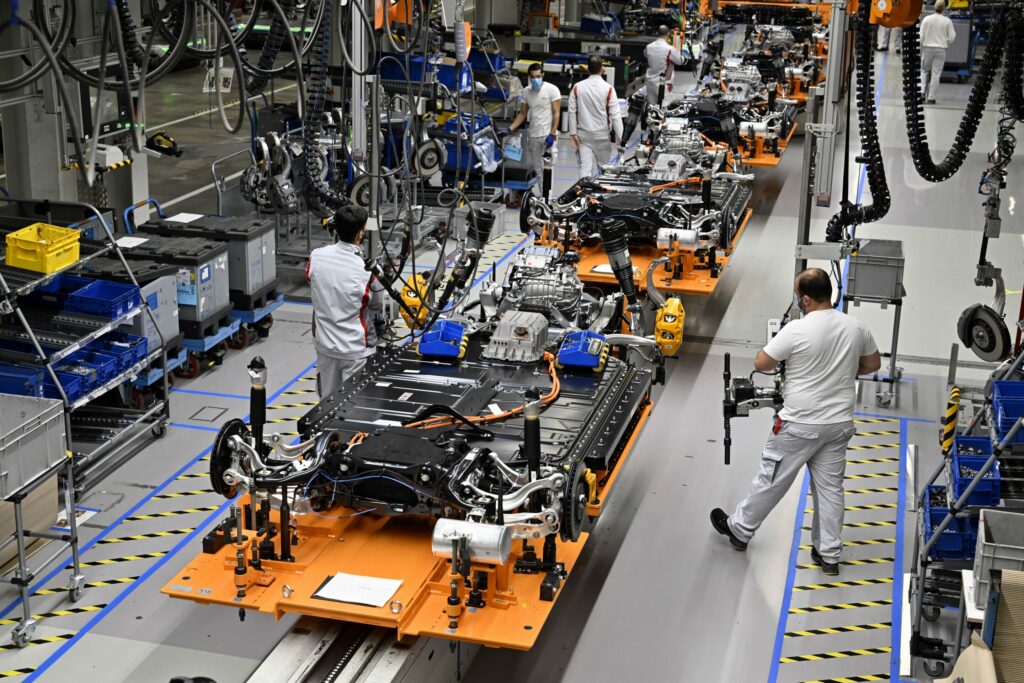It has been a tough year so far for Belgium's motor industries. The Flemish coachbuilder Van Hool – whose buses have transported passengers on roads around the world since 1947 – was declared bankrupt on Monday, threatening over 1,500 jobs.
In the manufacture of consumer vehicles, one of the last major industries in the Brussels Region also risks biting the dust, as Audi considers winding down its plant in the Forest commune. The site is a bastion of Belgian car building heritage and has produced over eight million cars since opening in 1948. From Studebakers to VW Beetles, Golfs to Audi A1s, vehicles that fill European roads have been put together in Brussels.
But with Audi struggling to sell the Q8 e-tron models that the site currently produces, the subsidiary of the Volkswagen Group is considering moving production to Mexico and ending its operations on Belgian soil for good.
The move would cost some 3,000 jobs – a highly skilled workforce that already has been whittled down as the plant moved from making around 200,000 of VW Golfs each year to a far smaller number of Q8 e-trons (less of a "people's car", this model retails from €81,500).
Notwithstanding the expertise of those who work there, Audi has struggled to sell the Q8 e-tron electric SUVs, with a low demand leading the company to question the long-term profitability of the model, or at least so long as it is made in Belgium. Audi announced recently that when it stops making the Q8, its successor will be produced in Mexico rather than Forest. It also has ruled out making the Q4 e-tron in Belgium.

An Q8 e-tron built at the Forest factory in Brussels. Credit: Belga / Dirk Waem
The decision raised alarm among employees, unions, and also ministers, all of whom recognise the economic value of the plant. Prime Minister Alexander De Croo was quick to call on Belgium's governments as well as senior Audi executives to figure out a rescue plan for Audi Forest.
A task force was assembled last week to analyse measures that could be taken at a government level to prevent the plant's closure. Among the levers that have been under review are subsidies, reductions in the plant's energy bills, and possible fiscal incentives for companies such as Audi that invest in Belgian sites.
A recent reform to Belgium's investment deduction initiative – which gives a significant 40% tax break for greener ventures – had not applied to the production of electric vehicles. This also is being reconsidered.
De Croo has stated that he will not "swear any expensive oaths but I will do everything I can to ensure that Audi employees in Brussels can have a future." He also sought to stress the strengths of the plant and the people who work there, saying that Belgium is a country of "great expertise in the field of electric vehicles and batteries".
He argued that Belgium has high productivity and insisted that "if you compare with Germany, [there is] absolutely no disadvantage in terms of labour costs" – hitting back at the common complaint of businesses who aim to reduce their costs.
Subsidies for today, investment in tomorrow
But despite the Prime Minister's avowed intention to save jobs, trade unions have been critical of his method, with Belgium's largest labour union lambasting De Croo for failing to involve the employees more in finding a solution. "Handing out subsidies to Audi is not enough," cautioned Hillal Sor, secretary general of MWB-FGTB union.
Speaking to l'Echo, Sor highlighted structural issues with EV production in Belgium, notably the lack of a large-scale battery industry which leaves Belgium (and Europe) largely dependent on Asian imports. He pointed to supply chain disruptions that have hampered production in recent years and made the case for investing in an "ecosystem of factories" suited for tomorrow's needs.
Yet with a political showdown looming in June, both in Belgium and Europe more broadly, uncertainties about the long-term viability of production plants are high among industrialists on the continent. How to be sure that any concessions agreed now will stand in six months? Or will vorsprung durch technik deal a killer blow to Belgium's car builders?

